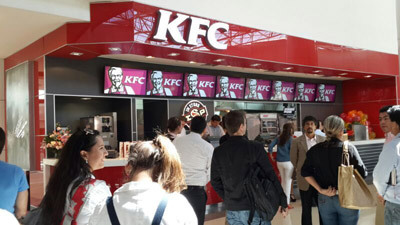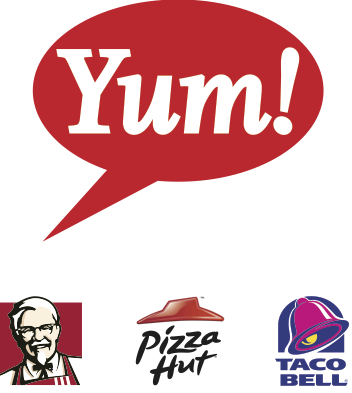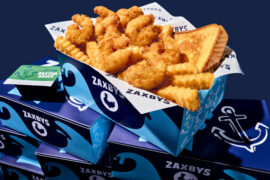Louisville, Kentucky, USA-headquartered Yum Brands Inc. posted a 19% increase in second-quarter 2014 profits, fueled by rebounding business at its KFC units in China where concerns about food safety have waned. Sales were adversely impacted in that country last year following reports in late 2012 regarding the use of unapproved antibiotics among some chicken farmers that supplied KFC.
Yum, which also operates Taco Bell and Pizza Hut restaurants, reported on July 16 that system-wide receipts in China rose 15%, while sales at KFC outlets advanced 21%.
USA operations logged sluggish results, however. KFC reported that sales at established restaurants in the United States were down two percent, while Pizza Hut’s decline amounted to four percent. Revenues at Taco Bell, on the other hand, increased two percent.
KFC reportedly remains on track to establish 700 more restaurants in China during the near future. Meanwhile, in South America it has opened the first KFC in Bolivia with franchise partner DELOSUR. Located in Santa Cruz’s Ventura Mall, the restaurant seats 200 people and offers a menu featuring Original Recipe and Extra Crispy Chicken, Hot Wings, the Original Recipe Sandwich, Twisters, salads and side dishes including mashed potatoes.

“Chicken is extremely popular in Bolivia and consumers are excited about the new restaurant,” said Sergio Hanna, DELOSUR’s chief executive officer.
The franchisee plans to open a second outlet in Santa Cruz later this summer that will serve as the flagship KFC. Santa Cruz, the most populous city in Bolivia, is home for 2.8 million residents.
Yum Brands, which has over 40,000 restaurants in more than 125 countries and territories, is ranked #216 on the Fortune 500 List with revenues of over $13 billion and in 2014. Furthermore, it is the worldwide leader in emerging markets with more than 14,000 restaurants and a nearly two-to-one advantage over the nearest competition. The company and its franchise partners plan to invest $10 billion and have more than 20,000 restaurants in emerging markets by 2020.





